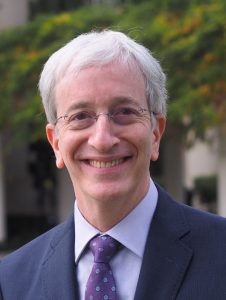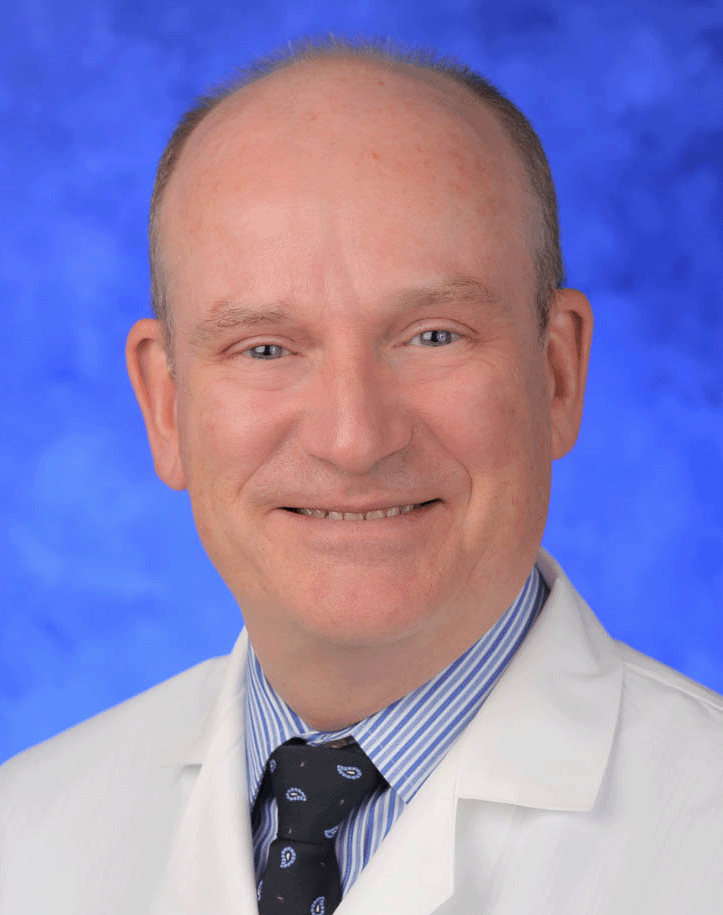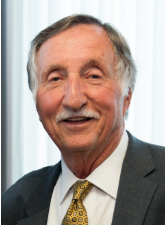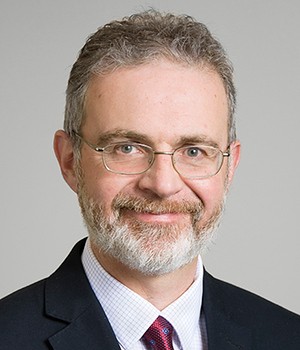From the President: Q&A with ABR Leadership: Reflections on Seven Years on Board of Governors
Outgoing ABR Board President Robert M. Barr, MD, shares thoughts on his ABR Board of Governors term.
August 2024;17(4):2

What were the ABR’s biggest challenges during your time on the Board?
COVID presented the biggest challenge during my term on the Board of Governors. Exams across all disciplines were repeatedly postponed and then ultimately canceled when it became clear that the ABR would need to pivot to a completely remote testing paradigm for oral and computer-based exams to resume.
Other challenges were more predictable, including the continuing need to ensure that ABR certification is valid, credible, reasonable, and cost-effective. Lastly, making sure that the ABR continues to evolve appropriately in the face of the changing scientific and societal landscape is challenging. ABR content must remain up to date as innovations in practice are introduced, and our policies (for example, residency leave) need to be flexible enough to be inclusive and nondiscriminatory.
What were the organization’s biggest accomplishments in those seven years?
The shift to a completely remote testing platform was the organization’s most impactful accomplishment. It was helped greatly by our successful implementation of Online Longitudinal Assessment (OLA), which was in planning when I joined the BOG in 2017 and had just begun when the pandemic hit. Transitioning to remote exams for board certification may seem now like “no big deal,” and we heard frustration from many at the time that it should happen more quickly. In a high-stakes testing environment, however, we simply couldn’t afford to roll out a version that would have had a significant likelihood of failure. One of the other ABMS Member Boards experienced a significant failure impacting large numbers of candidates, and none of the other Member Boards had yet rolled out a successful model at the time we developed ours.
The transition was successful because of the efforts of volunteers and staff throughout the organization. It has led the ABR’s evolution into an organization with a heavy IT focus, enabling numerous other beneficial changes, including office automation and increased organizational efficiency.
The other major accomplishment during my time on the BOG was a shift in communication strategy, with a heavy emphasis on stakeholder input. This occurs largely through the stakeholder advisory committees that have been established for initial and continuing certification in each discipline. The ABR has also been active in seeking regular input from related organizations in the radiologic disciplines. Some projects have required more individually tailored approaches to stakeholder engagement. Perhaps the best recent example is the comprehensive stakeholder sessions used to inform the ABR’s shift to oral exams for initial certification in diagnostic radiology, scheduled to begin in 2028.
It is important to remember that the ABR is not a member organization and that our primary stakeholder is the public. However, the radiologic community is a critical stakeholder and we do listen to feedback. We believe that it serves the radiologic community to ensure both rigor and reasonableness in our certification processes. The ABR, like other ABMS Member Boards, has been criticized as “tone deaf” in the past. We hope to continue moving in the right direction to correct that impression.
What did you learn about the organization as board president?
The organization is fortunate to have terrific staff. Staff members are talented and dedicated. Many are experts in their respective areas. Equally impressive is the group of accomplished volunteers who bring extensive experience, care deeply about the mission, and take their roles seriously. The sheer number of volunteers is hard to fathom — currently over 1,300 participate regularly on numerous committees to develop and validate our assessment instruments. The ABR is a strong organization because of its volunteers and staff.
What did you bring to the role as a private practice diagnostic radiologist?
Nonacademic practitioners make up the majority of ABR diplomates, and our practices are impacted by many of the decisions affecting both initial and continuing certification. I think that all volunteers are mindful of the realities of our diplomates, but it is helpful to have a range of perspectives when developing policy. My background as a relative “outsider” and long-time advocate for radiology practice has helped inform my view of the ABR’s role among numerous other educational, scientific, administrative, and advocacy organizations within radiology, and how the parallel efforts of these various organizations best serve our patients, thereby strengthening our practices and our specialty. I am also aware of the difficulty those in private practice face in finding the time to participate as ABR volunteers. Private practice volunteers are critical on our committees. Hopefully, the ABR will continue to improve the efficiency and flexibility that volunteers need to support those in a wide range of practice environments.
Being an ABR volunteer is an unpaid position. What do you get personally and professionally from being one?
True that it is unpaid, and it also comes with real work. Most of the volunteer positions are fairly time intensive. On item-writing committees, submitted work is reviewed in detail among your peers. Among leadership (Board of Trustees and Board of Governors), there are frequent, lengthy meetings dealing with complex and often high-stakes issues.
Despite this, our colleagues know what the ABR does, and what it means to contribute to that process. It is one of the most rewarding things I have done in my career, partly because of the importance of the task, and largely because of the wonderful group of volunteers similarly drawn to the mission.
It is challenging to make time during the day as workloads for all of us have increased. I am indebted to my colleagues at Mecklenburg Radiology Associates for providing me the flexibility and support to have served these past seven years.
How has your volunteer experience impacted the way you view the importance of board certification?
I have always believed in the importance of board certification. We are fortunate in each of the radiologic disciplines to have jobs that are in high demand, are intellectually stimulating and at the cutting edge of innovation, are valued by our payors and employers, and are critically important for the lives and health of our patients. My own gratitude for being able to practice in a field that I love helped stimulate my desire to support organized radiology. A robust board certification program serves our patients and helps ensure the continued validity and value of our field.
Dr. Cheri Canon will become board president in September. What qualities does she bring to the role that make her the right choice as your successor?
They are too numerous to count. She is a skillful leader who is effective and efficient. Everyone — myself included — loves working with her. She has great judgment, listens well, and makes everyone on the team better. She will benefit from a talented and thoughtful group of governors, a terrific president-elect, Dr. John Kaufman, and an exceptional executive director, Dr. Brent Wagner. The ABR is in great hands.





